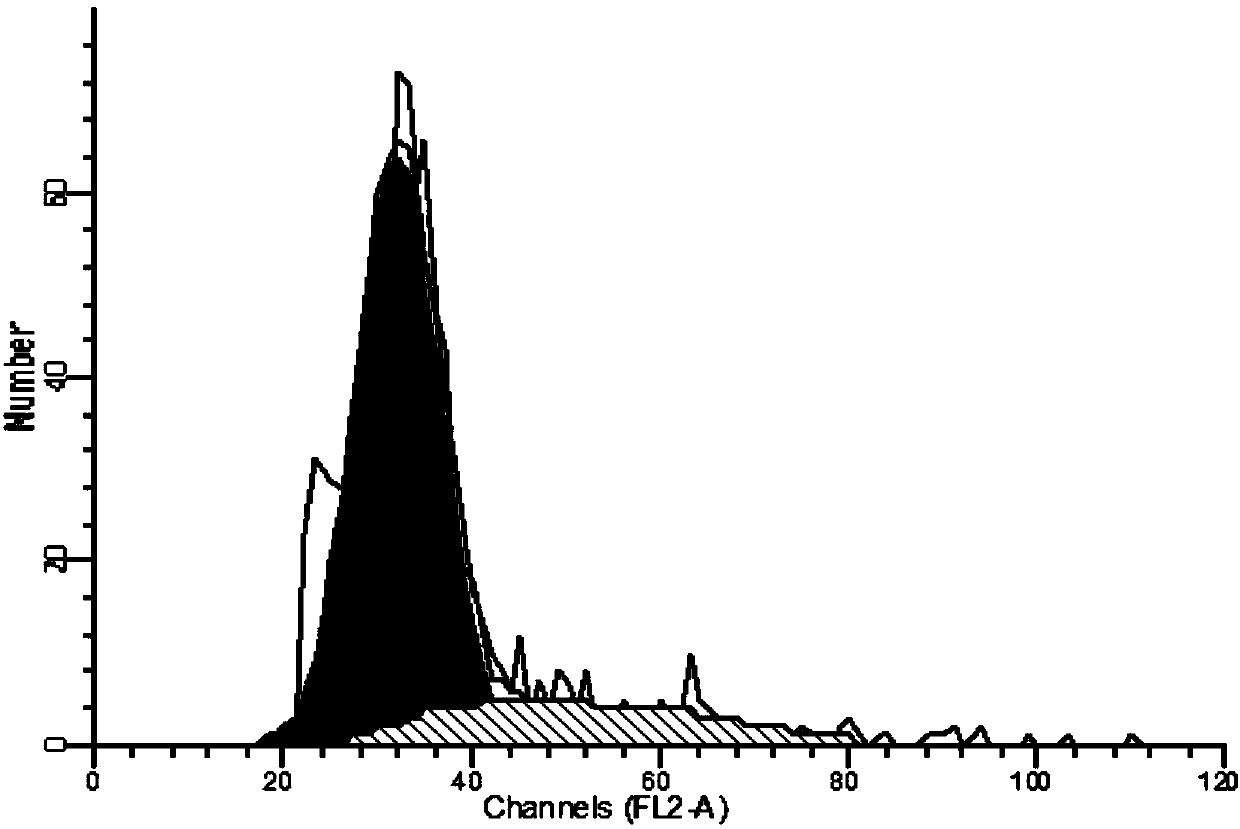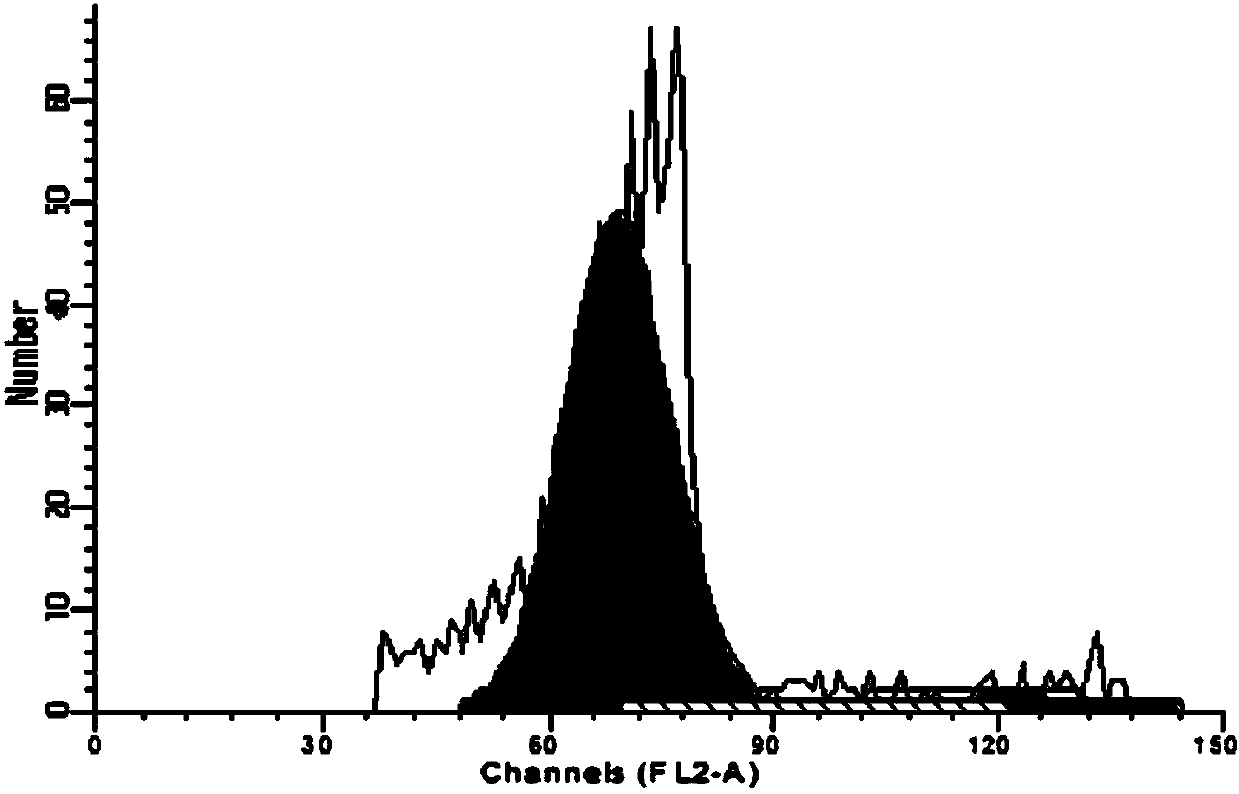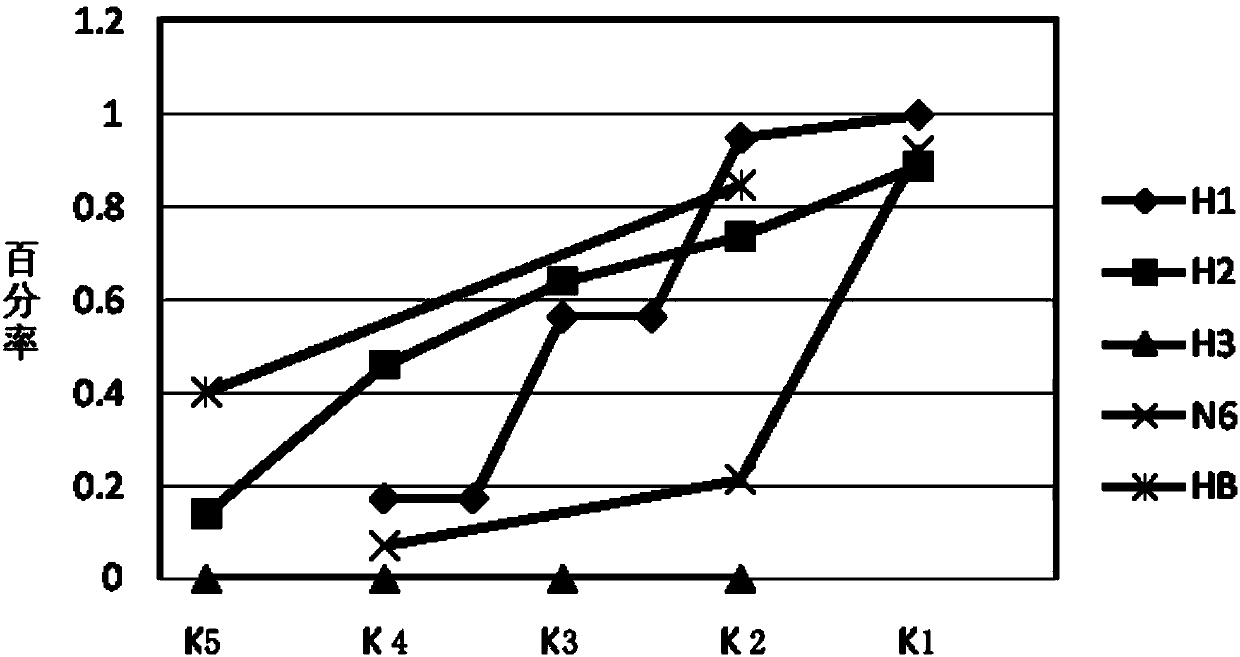Method for culturing male sterile tobacco haplont via unfertilized ovule
A technology for male sterility and ovule culture, applied in horticultural methods, botanical equipment and methods, horticulture, etc., can solve the problems of deterioration of yield and quality traits, limited value of breeding and utilization, no public reports, etc. Clustering, increasing the frequency of induction and plant regeneration, overcoming the effect of browning
- Summary
- Abstract
- Description
- Claims
- Application Information
AI Technical Summary
Problems solved by technology
Method used
Image
Examples
Embodiment 1
[0038] Embodiment 1: After removing the ovary wall from the ovaries of the flower buds of the above five stages of K1, K2, K3, K4, and K5, put them into the embryoid body induction medium prepared with the H1 medium as the basic medium and cultivate them with H2 The embryoid body induction experiment was carried out in the embryoid body induction medium prepared with basic medium.
[0039] Wherein the embryoid body induction medium prepared with the H1 medium as the basic medium carries out the specific operation process of the embryoid body induction culture as follows:
[0040] (1) Disinfection treatment and inoculation of materials, put the flower buds collected in the above five periods into 0.1% mercuric chloride solution for disinfection for 7-9 minutes, then rinse with sterile water for 3-4 times, and then in aseptic conditions Cut off the bases of the flower buds of the five stages after disinfection, extrude the ovary with forceps, and remove the ovary wall and put th...
Embodiment 2
[0045] Embodiment two: the ovary of flower bud of five stages of K1, K2, K3, K4, K5 is directly peeled off ovule, and puts into respectively the embryoid body induction medium prepared with H1 medium as basic medium and with H2 medium The embryoid body induction test was carried out in the embryoid body induction medium prepared as the basic medium. The specific operation process was as in Example 1, and the test results obtained were the same as in Example 1.
Embodiment 3
[0046] Embodiment 3: The ovaries of flower buds in the above five stages of K1, K2, K3, K4, and K5 are circumcised and put into embryoid body induction medium prepared with H1 medium as basic medium and H2 medium respectively. The embryoid body induction test was carried out in the embryoid body induction medium prepared for the basic medium. After one week of inoculation and culture, the exposed ovules could be observed to expand obviously, and the ovary wall of the explant with ovary wall turned green Thickened, no ovary wall rupture was observed, and the internal ovules basically showed no sign of expansion. At this time, the ovary wall was removed, and the ovules were still browned and died during the culture process.
[0047] In the above three examples, the ovules in the five stages from K1 to K5 were cultured after removing the ovary wall or directly peeling off the ovules, and the ovules all had swelling phenomenon, but it can be seen from the first and second implement...
PUM
 Login to View More
Login to View More Abstract
Description
Claims
Application Information
 Login to View More
Login to View More - R&D
- Intellectual Property
- Life Sciences
- Materials
- Tech Scout
- Unparalleled Data Quality
- Higher Quality Content
- 60% Fewer Hallucinations
Browse by: Latest US Patents, China's latest patents, Technical Efficacy Thesaurus, Application Domain, Technology Topic, Popular Technical Reports.
© 2025 PatSnap. All rights reserved.Legal|Privacy policy|Modern Slavery Act Transparency Statement|Sitemap|About US| Contact US: help@patsnap.com



